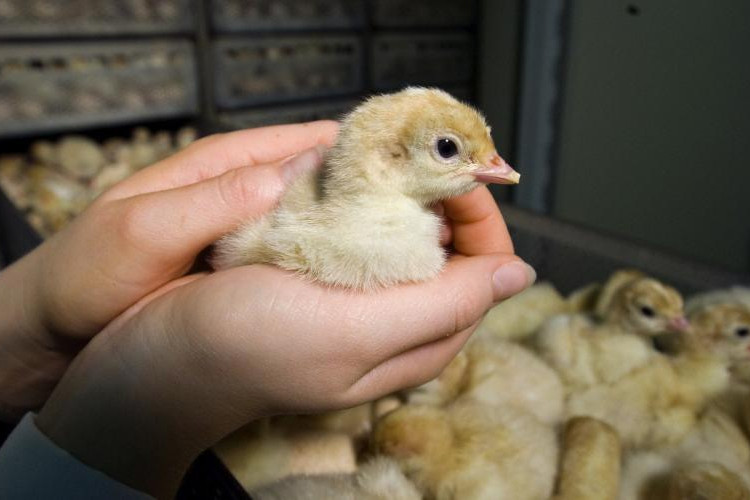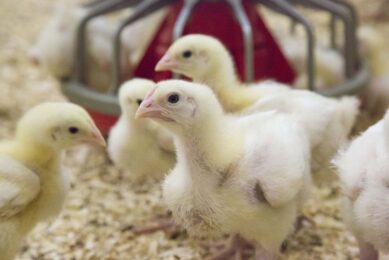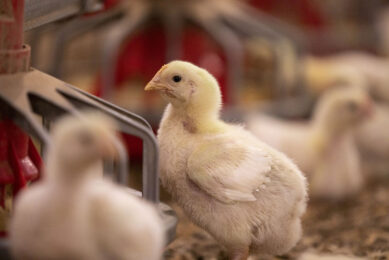Lessons for poultry producers on disease preparedness

Dealing with disease in poultry production is challenging. Many factors come into play. Even to the point of dealing with the re-emergence of a disease believed to be a disease of the past.
Diseases that affect poultry species tend to find ways to evolve, evading strategies to eradicate them. Genetic mutations, the emergence of new virulent strains, and changes in production practices and regulations on the use of therapeutic products create a scenario wherein producers need to identify innovative ways to deal with familiar challenges.
Re-emergence of histomoniasis
A recent example of the difficulty in dealing with changing diseases is the re-emergence of histomoniasis, also known as blackhead disease, in turkeys raised in the US.
Histomoniasis is caused by a protozoan that can cause lesions in the ceca and liver of poultry. The disease can be very costly because it can make broilers more susceptible to coccidiosis, and it can lead to high mortality rates in turkeys.
Turkey producers in the US had considered blackhead disease to be a problem of the past. In the 1940s, the US Food and Drug Administration (FDA) approved the use of arsenic-based drugs, which were very effective at preventing and treating blackhead disease.
Ban on arsenic-based drugs in poultry
A shakeup occurred in 2011 when the FDA concluded that, based on new research, these drugs could potentially leave traces of inorganic arsenic residue in the livers of chickens. Since inorganic arsenic compounds are highly toxic and harmful to human health, the FDA began phasing out these drugs from poultry production. By December 2015, nitarsone, the last available arsenic-based drug for use in food animals, was removed from the market, leaving producers exposed to blackhead disease for the first time in more than half a century.
Producers had become dependent on arsenic-based drugs because very little research on alternative solutions to histomoniasis was conducted. Now that these compounds are no longer available for use, turkey producers are being forced to develop new approaches in order to protect their birds.
Restrictions on antibiotic use in poultry production
With the Veterinary Feed Directive policy recently taking effect in the US, there are more restrictions being placed on antibiotics used in animal production. While these restrictions have yet to lead to banning preventative antibiotics, such as what was done with nitarsone, we have to consider what could happen if this were to become the case. If necrotic enteritis preventative drugs (e.g., bacitracin, virginiamycin, tylosin) were completely banned, we would have to adjust to a different gut health approach to prevent necrotic enteritis from impacting birds.
In a recent webinar for Alltech, Dr. Dennis Wages, professor of poultry health management at North Carolina State University, explained a programme that has been helping producers address blackhead disease in this new production era. Wages’ control points include:
Building a defence against poultry diseases
Management control points:
- Strong biosecurity protocols on-farm
- Deworm poultry litter
- Increase litter depth
- Vectors control, such as pests and beetles
- Cleaning and disinfecting equipment and facilities
Nutritional control points:
- Phytogenic compounds
– Essential oil blends and saponins - Organic acids
- Yeast cell wall nutritional technologies
- Combinations (plant extracts, essential oils, yeast carbohydrates and organic minerals)
The already difficult task of protecting flocks against disease is likely to become increasingly challenging, but producers can stay ahead of the game by being aware of and testing new management and nutritional technologies. Turkey producers in the US learned from their blackhead disease experience, but it is likely that this story will repeat itself in another form in the future if the industry is not prepared.
Click on the video below to see our blackhead disease short story and learn how Alltech has been helping turkey producers overcome their challenges.
Join 31,000+ subscribers
Subscribe to our newsletter to stay updated about all the need-to-know content in the poultry sector, three times a week. Beheer
Beheer





 WP Admin
WP Admin  Bewerk bericht
Bewerk bericht